第2章 THE ARGUMENT(1)
Lucius Tarquinius, for his excessive pride surnamed Superbus, after he had caused his own father-in-law Servius Tullius to be cruelly murdered, and, contrary to the Roman laws and customs, not requiring or staying for the people's suffrages, had possessed himself of the kingdom, went accompanied with his sons and other noblemen of Rome, to besiege Ardea.During which siege the principal men of the army meeting one evening at the tent of Sextus Tarquinius, the king's son, in their discourses after supper every one commended the virtues of his own wife; among whom Collatinus extolled the incomparable chastity of his wife Lucretia.In that pleasant humour they all posted to Rome; and intending, by their secret and sudden arrival, to make trial of that which every one had before avouched, only Collatinus finds his wife, though it were late in the night, spinning amongst her maids: the other ladies were all found dancing and revelling, or in several disports.Whereupon the noblemen yielded Collatinus the victory, and his wife the fame.At that time Sextus Tarquinius being inflamed with Lucrece' beauty, yet smothering his passions for the present, departed with the rest back to the camp; from whence he shortly after privily withdrew himself, and was, according to his estate, royally entertained and lodged by Lucrece at Collatium.The same night he treacherously stealeth into her chamber, violently ravished her, and early in the morning speedeth away.Lucrece, in this lamentable plight, hastily dispatcheth messengers, one to Rome for her father, another to the camp for Collatine.They came, the one accompanied with Junius Brutus, the other with Publius Valerius; and finding Lucrece attired in mourning habit, demanded the cause of her sorrow.She, first taking an oath of them for her revenge, revealed the actor and whole manner of his dealing, and withal suddenly stabbed herself.Which done, with one consent they all vowed to root out the whole hated family of the Tarquins; and bearing the dead body to Rome, Brutus acquainted the people with the doer and manner of the vile deed, with a bitter invective against the tyranny of the king: wherewith the people were so moved, that with one consent and a general acclamation the Tarquins were all exiled, and the state government changed from kings to consuls.
From the besieged Ardea all in post, Borne by the trustless wings of false desire, Lust-breathed Tarquin leaves the Roman host, And to Collatium bears the lightless fire Which, in pale embers hid, lurks to aspire And girdle with embracing flames the waist Of Collatine's fair love, Lucrece the chaste.
Haply that name of chaste unhapp'ly set This bateless edge on his keen appetite;When Collatine unwisely did not let To praise the clear unmatched red and white Which triumphed in that sky of his delight, Where mortal stars, as bright as heaven's beauties, With pure aspects did him peculiar duties.
For he the night before, in Tarquin's tent, Unlocked the treasure of his happy state;What priceless wealth the heavens had him lent In the possession of his beauteous mate;Reck'ning his fortune at such high-proud rate That kings might be espoused to more fame, But king nor peer to such a peerless dame.
O happiness enjoyed but of a few!
And, if possessed, as soon decayed and done As is the morning silver-melting dew Against the golden splendour of the sun!
An expired date, cancelled ere well begun:
Honour and beauty, in the owner's arms, Are weakly fortressed from a world of harms.
Beauty itself doth of itself persuade The eyes of men without an orator;What needeth then apology be made, To set forth that which is so singular?
Or why is Collatine the publisher Of that rich jewel he should keep unknown From thievish ears, because it is his own?
Perchance his boast of Lucrece' sov'reignty Suggested this proud issue of a king;For by our cars our hearts oft tainted be.
Perchance that envy of so rich a thing, Braving compare, disdainfully did sting His high-pitched thoughts, that meaner men should vaunt That golden hap which their superiors want.
But some untimely thought did instigate His all too timeless speed, if none of those.
His honour, his affairs, his friends, his state, Neglected all, with swift intent he goes To quench the coal which in his liver glows.
O rash-false heat, wrapped in repentant cold, Thy hasty spring still blasts, and ne'er grows old!
When at Collatium this false lord arrived, Well was he welcomed by the Roman dame, Within whose face beauty and virtue strived Which of them both should underprop her fame:
When virtue bragged, beauty would blush for shame;When beauty boasted blushes, in despite Virtue would stain that o'er with silver white.
But beauty, in that white entituled, From Venus' doves doth challenge that fair field;Then virtue claims from beauty beauty's red, Which virtue gave the golden age to gild Their silver cheeks, and called it then their shield;Teaching them thus to use it in the fight, When shame assailed, the red should fence the white.
This heraldry in Lucrece' face was seen, Argued by beauty's red and virtue's white;Of either's colour was the other queen, Proving from world's minority their right;Yet their ambition makes them still to fight, The sovereignty of either being so great That oft they interchange each other's seat.
This silent war of lilies and of roses Which Tarquin viewed in her fair face's field, In their pure ranks his traitor eye encloses;Where, lest between them both it should be killed, The coward captive vanquished doth yield To those two armies that would let him go Rather than triumph in so false a foe.
Now thinks he that her husband's shallow tongue, The niggard prodigal that praised her so, In that high task hath done her beauty wrong, Which far exceeds his barren skill to show;Therefore that praise which Collatine doth owe Enchanted Tarquin answers with surmise, In silent wonder of still-gazing eyes.